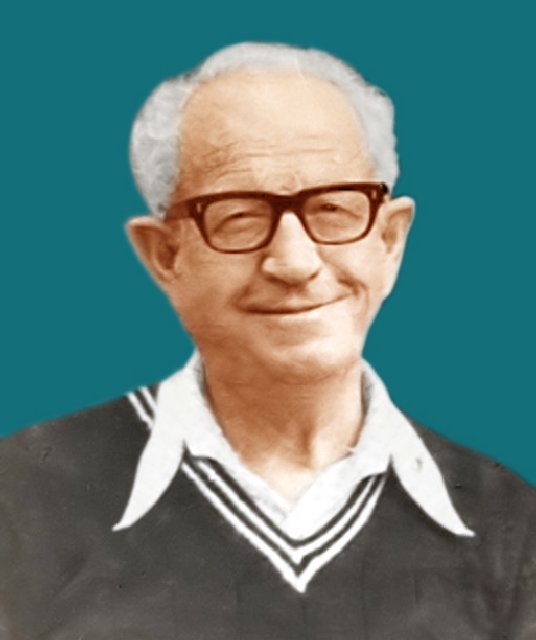Fr. John Moore, S.J.

Fr. John Moore (1918 – 1988)
(Principal Nov 1951 – Jun 1965)
John Moore was born in 1918 in Victoria, Australia. He was educated at Xavier College, Melbourne. He entered the Society of Jesus in 1936 and was ordained priest in 1949. He came to India in early 1951 and spent some months learning Hindi in Ranchi. In late 1951 he was appointed to start St. Xavier’s School at Hazaribag. There was only the original house called “Balmoral”. A nearby building called “Hampton Court” was rented. The school opened on January 26, 1952.
At the age of 34 Fr John Moore was hardly one year in India when he was asked by his Jesuit Superiors and the Bishop of Ranchi to start an English Medium school in Hazaribag. It was in many ways a pioneering enterprise. To familiarize himself with the existing style of such schools he visited Patna, Darjeeling, Calcutta and Jamshedpur. None of the Jesuit schools he saw provided with a fully satisfactory template for the school he envisaged which would not be a traditional ‘hill school’ or a school for the well to do, but would cater for middle class families and would have boarding facilities. And so the school opened in hurriedly erected quarters in January 1952.
Father Moore slowly built the school up over years that saw him engaged in teaching, planning, building, guiding teachers and students. He had a very keen mind, was deeply interested in education, and loved the challenge of starting a new school. He took a very personal interest in every teacher and student and opened up a challenge for all, at the same time providing them with the security of a school where they felt welcomed and cared for and where there was a security of a supporting basis of discipline that was flexible and humane. He was very cooperative with the town officials as he was anxious that St. Xavier’s contribute to the Hazaribag town. Over the years St. Xavier’s grew and John Moore grew with it. For thirteen years John monitored the school carefully, often evaluating it with others and often sought advice.
Fr Moore had a profound philosophy of education which he slowly implemented and as time went on he imparted it to his boys and teachers, both by his style of administration in the memorable Moral Science classes he regularly gave for seniors. Outside of class hours he was always available for chats with boys; this formed an important part of what he saw as forming an enlightened youth capable of understanding himself and being able to manage his life in the hurly-burly of business or professional life.
In May 1965 Father Moore left St. Xavier’s for a short break and by June 1966 he was busy building up a similar school in the new steel city at Bokaro. This school started off as a co-educational school and under John’s careful planning grew rapidly. John spent fourteen years there and came back to Hazaribag to begin research on education in 1980. This occupied him until his death in 1988
In 1965, having handed over a well run school, and having had a well deserved holiday Fr Moore was asked to respond to the request of the newly started Bokaro Steel plant to start a school in Bokaro Steel City. This was not quite a replica of the Hazaribag School. There was no need for boarding facilities, it was co-educational, and he invited Franciscan Clarist Sisters to join the staff.
In 1979 Fr Moore retired from active school administration and devoted himself to lecturing in India and abroad and writing on Jesuit education, until his sudden death on 2 October 1988.
A deeply religious and prayerful man, a man of great compassion and respect for others, a man who loved a challenge himself and who loved to quote Browning’s “A man’s reach must outdo his grasp or what’s a heaven for” to others, he inspired confidence and helped others to grow in inner freedom and in the joy of giving to others. He is still held in very high regard by his former students. When they come to Hazaribag many make a pilgrimage to his grave at St. Stanislaus cemetery.